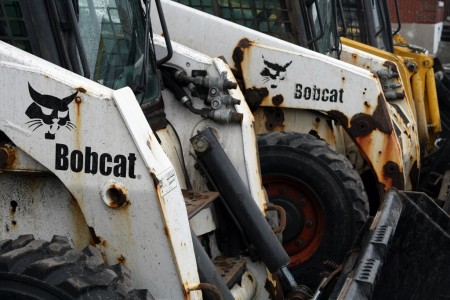The arrival of spring in Ottawa is generally accompanied, for at least a span of time, by violent shifts in temperature. It may be over 10˚C one day, then -10˚C a couple of days later. This is one reason why Ottawa has such broken-up roads and such a constant task of road reconstruction – water gets into cracks on warm days, then freezes and forces them open wider.
One thing this time of year demonstrates is the relatively high certainty that temperatures will stay below freezing for a good span of the year – a situation shared with many other settlements around the world. That reality makes me wonder about the wisdom of having a freezer in my poorly insulated kitchen, using electricity to run compressors and keep the things inside frozen. It seems like it should be fairly practical in places like this to have an outlet to the outside air, similar to those used by driers. The outlet would have a couple of well-insulated doors, one at the entrance to the freezer and one on the outside wall. When temperatures outside were below 0˚C, the freezer would open the doors (when necessary) to keep the contents at the desired temperature. During the summer months, the duct could be disconnected, and a couple of even more well-insulated caps could be put in the freezer wall and outer wall.
A slightly fancier system would not just allow outside air directly into the freezer, but would have sealed loops for outside and inside air that only allow temperature to be passed from one to the other (as with a heat exchanger). That would avoid potential problems with introducing excessive moisture, pollution, etc. Also, and risk of small animals getting inside.
Such an approach would not only be useful for people in my situation. First Nations groups in the Arctic have long relied upon freezing cold winters to preserve meat. Rising uncertainty about whether such frozen caches will actually remain frozen throughout the winter threatens to spoil food. Surely, in such situations, it would make more sense to build insulated shelters that usually rely upon ambient cold to keep food from spoiling, employing an electrical cooling system only when outside temperatures required it.


Are you aware of the FreeAire refrigeration system for stores? http://www.worldchanging.com/archives/007951.html has a good discussion.
Here is a do-it-yourself version of a hybrid fridge: http://www.instructables.com/id/Build-an-ultra-efficient-fridge/